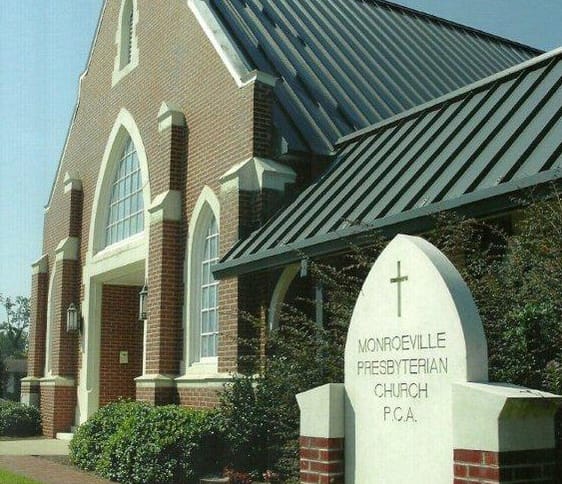Dear MPC Family,
This month, Dr. Francis Schaeffer is the subject of our featured biography. There is so much to say about Schaeffer that it is difficult to even to brush the surface about this brilliant man. Some key things I mention below are his work at L’Abri (in Switzerland), the idea of “true truth” he puts forward, and some of his legacy, including such things as his written works, recordings, and videos.
It was actually Schaeffer’s videos that first caught my attention. His series “How Should We Then Live?” was shown for the evening service sometime in the late 1970s, when I was a kid. My first impression, I admit, was that Schaeffer was an odd guy wearing funny clothes talking about things way over my head. But, it stuck with me that he was important to my pastor, so he must be important. Hence, upon enrolling at Covenant Seminary, I was delighted to find out they had a “Francis Schaeffer Institute” (FSI). Jerram Barrs, a professor at Covenant and the resident scholar for FSI, was a good friend of Schaeffer who spent years at L’Abri with him. Interestingly, Barrs was also Edith Schaeffer’s gardener. So, providentially, I reengaged with Schaeffer’s work at Covenant and am thankful that I did.
Schaeffer was a 20th century Presbyterian pastor, theologian, apologist, philosopher, and cultural critic. Now, while the latter may sound negative, his critique was very insightful concerning western culture when viewed from a Christian worldview. Although he died in 1984, the larger thrust of his teaching remains very valid today. Schaeffer is very high on my list of folks that I recommend to be read and studied.
Schaeffer was an American, and he and Edith went to Switzerland in the early 1950s, as part of a mission organization. They founded L’Abri in 1955 in the Swiss mountain town of Huemoz. L’Abri (meaning “shelter” in French) came about when the Schaeffers opened their home to curious travelers who wanted to stop by and talk over philosophy and religion. Over time, people traveled from all over the world to L’Abri in order to sit at the feet of this brilliant man, and quite a few stayed for a while. Generations have been impacted by his teaching, showing the relevance of Jesus Christ to the world and their lives. Many of his recorded teachings are found here: http://www.labri-ideas-library.org/dr-schaeffer-collection.asp.
Of the many topics and ideas of Schaeffer, one that has always stood out to me is his concept of “true truth.” He defines it: “Although God has not given us exhaustive knowledge (only He is infinite), He has given us true knowledge (what I have often called true truth)—true knowledge about Himself, about history, and about the cosmos.”[1] Hence, this “true truth” is a non-negotiable truth. Any teaching contrary to the Scriptures is a lie or a distortion of the truth. Humankind cannot escape this truth no matter how hard we try, for the Scriptures accurately speak to the reality in which all people find themselves, as all people were created by God in the universe God created. Hence, from the truth of God flows the Christian worldview, with Jesus Christ the Lord over all. This idea of “true truth” flies in the face of the nonsensical idea that “truth is relative.” It also means that even when you find a “true truth” in a culture or religion that is anti-God, or anti-Christ, it is still God’s truth, for there is no truth that is not derived from God. Everything else they might say may be bunk, but that “true truth” is God’s truth. Practically, from an evangelistic point of view, this means we have a starting point, a bridge, for the gospel into any philosophy, world-view, religion, or culture (something Professor Barrs drilled into us at Covenant).
If you are interested in some worthwhile reads, I recommend Schaeffer. You can buy The Complete Works of Francis A. Schaeffer: A Christian Worldview, which is a 5-book set (available digitally for Logos Bible Software, also). Some individual titles in the set, which I recommend, include: The God Who Is There, Escape from Reason, He Is There and He is Not Silent, Genesis in Space and Time, Art and the Bible, True Spirituality, The Church Before the Watching World, The Mark of the Christian, Death in the City, The Great Evangelical Disaster, How Should We Then Live?, Whatever Happened to the Human Race, and A Christian Manifesto. These are all included in the 5-volume set, but you can find them all individually published. He’s also got a great pamphlet called Baptism.
In Christ,
Roger
[1] Francis A. Schaeffer, The Church Before the Watching World, in The Complete Works of Francis A. Schaeffer: A Christian Worldview, vol. 4 (Westchester, IL: Crossway Books, 1982), 120.


